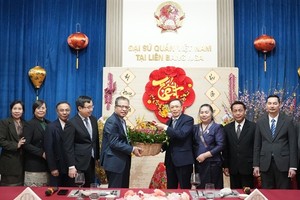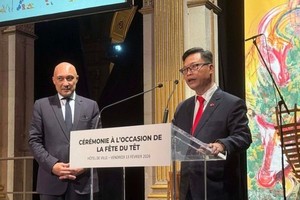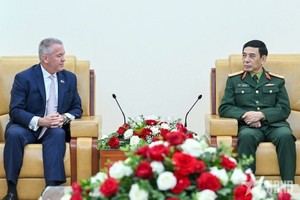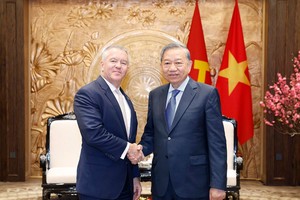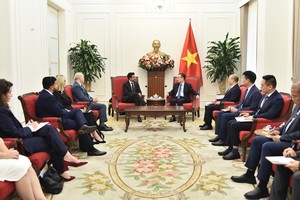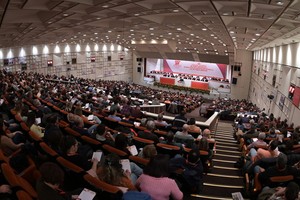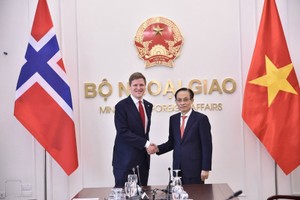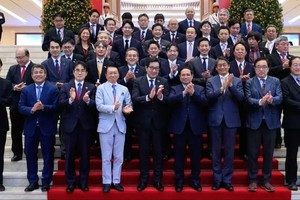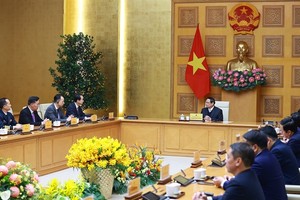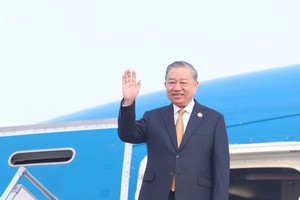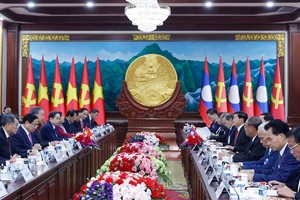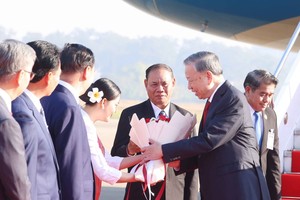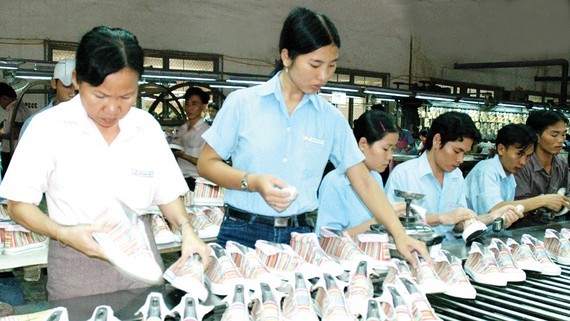 Footwear is among Vietnam's key exports to the EU. (Photo: SGGP)
Footwear is among Vietnam's key exports to the EU. (Photo: SGGP)
Thanks to the EVFTA that took effect on August 1, 2020, Vietnam’s exports to the EU still rose 14.2 percent year on year to US$45.8 billion in 2021 despite the Covid-19 pandemic’s impacts. The revenue increased 22.6 percent to US$23.82 billion in the first half of this year, statistics show.
Notably, about US$7.8 billion in exports to the EU used the EUR.1 certificate of origin in 2021. Up to US$5.84 billion worth of goods used this type of certificate in the first six months of 2022, up 32.1 percent from a year earlier.
Tariff cuts under the EVFTA have been capitalised on relatively well by sectors. About one-fourth of the Vietnamese exports to the EU have benefited from certain forms of preferential treatment under this new-generation FTA, Luong Hoang Thai, Director of the Multilateral Trade Policy Department at the Ministry of Industry and Trade (MoIT), told the Quan doi Nhan dan (People’s Army) daily.
Apart from trade, the deal has also helped facilitate EU investment influx and created momentum for institutional reforms, business climate improvement, and transition to a country with a skilled workforce.
It is said that Vietnamese firms now hold great chances to boost shipments to the EU since the two markets are complementary to each other, the 27-member EU with a combined population of over 500 million has huge demand for imports, and businesses are gradually becoming familiar to the commitments under the EVFTA.
However, challenges are also lying on the way ahead, according to Quan doi Nhan dan.
While high inflation has undermined aggregate demand in the EU, the euro depreciation trend over the past year and the bloc’s fast changing trade policy have considerably affected Vietnamese businesses.
Tran Thanh Hai, Deputy Director of the MoIT’s Foreign Trade Agency, said facing such difficulties, the ministry has been taking numerous solutions, especially promoting the opitimisation of tariff cuts under FTAs.
Regarding changes in the EU’s trade policy, Thai noted this market is strongly shifting to environmentally friendly products and those meeting labor standards, which means consumers now pay attention to not only prices and quality but also the production process.
For example, the EU requires apparel imports be durable, reusable and mendable, so producers must use recycled and environmentally friendly yarn, he went on.
In terms of agricultural and food products, Nguyen Khac Tien, Chairman of the Ameii Vietnam JSC, held that enterprises should be more serious in controlling their production process, from cultivation, harvest to product testing.
Continuing to tap into the EVFTA is believed to be one of the important factors helping with Vietnam’s post-pandemic economic recovery.
Nguyen Thi Thu Trang, Director of the WTO and Integration Centre at the Vietnam Chamber of Commerce and Industry (VCCI), held that the most important thing is to provide sufficient information for enterprises so that they can make the best use of the agreement.
